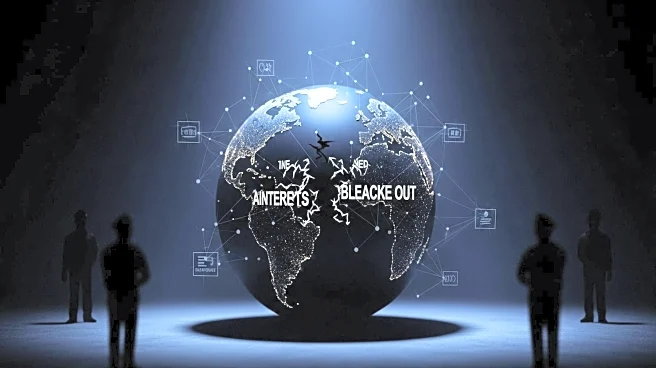What's Happening?
Afghanistan is experiencing a near-total internet blackout as the Taliban enforces a crackdown on activities they consider immoral. The shutdown follows earlier restrictions on fiber-optic connections in several provinces. The Taliban leader, Hibatullah Akhundzada, issued a decree banning the service to prevent immorality. The internet advocacy group Netblocks reported that connectivity in Afghanistan has collapsed to 14% of ordinary levels. The Associated Press was unable to contact its Kabul bureau, and local media reported potential nationwide cuts to fiber-optic services.
Why It's Important?
The internet blackout in Afghanistan has severe implications for the country's economy and society. It limits access to education and business communication, isolating the Afghan population from the global community. The move is part of the Taliban's broader efforts to control public dissent and restrict rights, particularly affecting women and girls. The blackout exacerbates Afghanistan's humanitarian crisis, worsened by aid cuts and the return of refugees. The lack of internet access further isolates Afghanistan, complicating international relations and efforts to provide humanitarian aid.
What's Next?
The Taliban has suggested that mobile services may be restored with a lower-capacity signal, but details remain unclear. The international community may increase pressure on the Taliban to restore internet access and address the humanitarian crisis. Business leaders and civil society groups within Afghanistan are likely to advocate for the restoration of connectivity to resume normal operations and communication.
Beyond the Headlines
The internet blackout raises ethical concerns about freedom of expression and access to information. It highlights the Taliban's control over communication channels and the potential for increased censorship. The move may lead to long-term shifts in Afghanistan's digital landscape, affecting the country's integration into the global community and its economic development.











